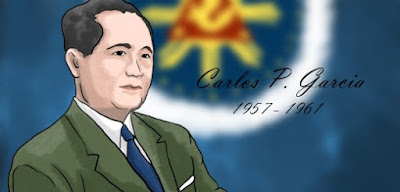Carlos P. Garcia served as the president of the Philippines from 1957 to 1961. Here are some of his achievements and legacies during his presidency:
- Filipino First Policy - One of Garcia's most notable achievements was the introduction of the Filipino First Policy. This policy aimed to prioritize the interests of Filipinos over foreign investors and businesses. It mandated that Filipinos must own at least 60% of any business venture in the country. This policy helped promote the growth of local industries and businesses, and ensured that Filipinos had more control over their economy.
- Agrarian reform: Garcia continued the land reform program initiated by his predecessor, Ramon Magsaysay. He focused on improving land productivity and promoting the welfare of farmers, and established the Agricultural Credit and Cooperative Financing Administration to provide financing and technical assistance to farmers.
- Nationalism and cultural identity: Garcia was a staunch advocate for Philippine nationalism and cultural identity. He promoted the use of the national language, Filipino, and established the Cultural Center of the Philippines to promote the country's arts and culture.
- Fiscal discipline and good governance: Garcia was committed to promoting fiscal discipline and good governance. He established the Presidential Complaints and Action Committee to investigate complaints against government officials, and launched a campaign to promote honesty and integrity in government.
- Foreign policy: Garcia pursued an active foreign policy and sought to promote good relations with other countries in the region. He played a key role in the establishment of the Association of Southeast Asian Nations (ASEAN), which aimed to promote regional cooperation and economic development.
Overall, Garcia's presidency was marked by his emphasis on economic nationalism, agrarian reform, and cultural identity. His legacy as a president who prioritized the interests of Filipinos in economic policies, promoted fiscal discipline and good governance, and sought to promote regional cooperation and development continues to influence Philippine politics and society today.


Post a Comment